All about polycystic ovary syndrome

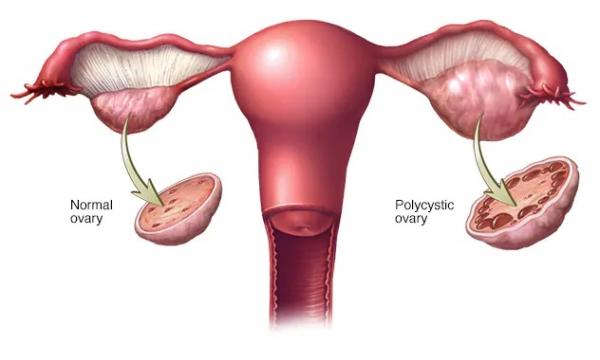 Polycystic ovary syndrome
Polycystic ovary syndromePolycystic ovary syndrome
Polycystic Ovary Syndrome (PCOS for short) is one of the common problems in women that affects the regulation of ovarian hormones. This syndrome may have serious effects on women's health and quality of life. The disorder affects about 5 to 10 percent of women of reproductive age and can lead to a wide range of symptoms, including irregular periods, hair growth, acne, infertility, and weight gain. In this article, we introduce and describe the causes, symptoms and treatment methods of polycystic ovary syndrome.
Causes of polycystic ovary syndrome
1. Hormonal disorders
Hormonal disorders affect the regulation of ovarian hormone production as well as blood sugar and can cause polycystic ovary syndrome. An increase in the level of male hormones, such as testosterone, in women's bodies can lead to the formation of ovarian cysts and abnormalities in egg production.
2. Insulin resistance
Insulin resistance is a condition in which the body is unable to use insulin optimally. This condition can increase the blood sugar level and increase the secretion of insulin by the pancreas. These conditions can affect the production of ovarian hormones and cause polycystic ovary syndrome.
3. Genetic factors
Genetic factors can also play an important role in the occurrence of polycystic ovary syndrome. If there is a family history of polycystic ovary syndrome, people who have direct relatives with the disease are more likely to develop this syndrome.
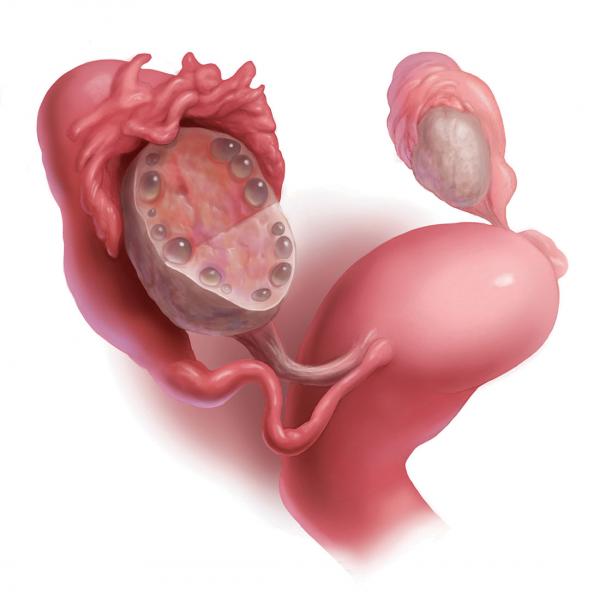 Causes of polycystic ovary syndrome
Causes of polycystic ovary syndromeSymptoms of polycystic ovary syndrome
1. Irregular period regulation
One of the common symptoms of polycystic ovary syndrome is irregular periods. Many women with this syndrome experience having irregular periods, such as having long or short periods or even going without a period for long periods of time.
2. Excess hair growth and acne
Increased levels of male hormones in the body can lead to the growth of extra hair in unusual areas such as the face, chest, and abdomen. Also, the appearance of acne and skin spots can also be other signs of polycystic ovary syndrome.
3. Weight gain and problems related to obesity
Many women with PCOS face problems related to obesity. Insulin resistance and hormonal disorders can cause weight gain and related problems such as difficulty in losing weight.
4. Egg production problems and infertility
Polycystic ovary syndrome can affect egg production and cause infertility or fertility problems. Eggs may accumulate in the ovaries in the form of cysts and prevent them from reaching the fallopian tubes for fertilization.
Diagnosis of polycystic ovary syndrome
There is no definitive diagnostic test for PCOS, but a doctor can diagnose the disorder by reviewing your symptoms, medical history, and performing a physical exam. The doctor may also order tests such as blood tests to measure hormone levels and ultrasound to check the ovaries.
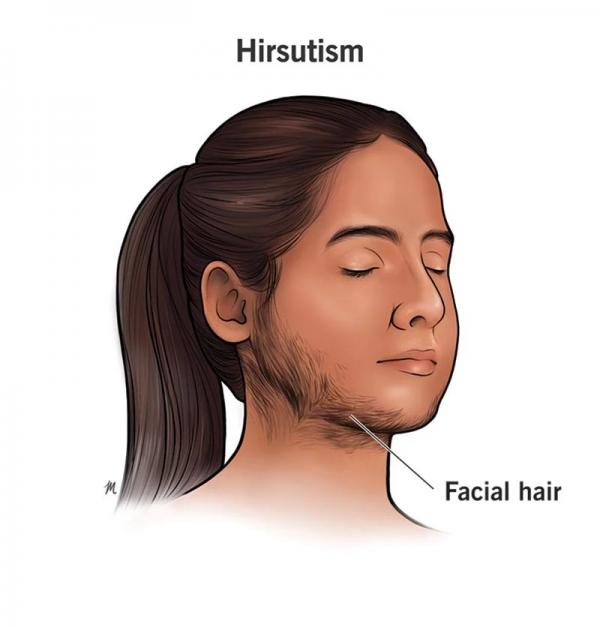 Symptoms of polycystic ovary syndrome
Symptoms of polycystic ovary syndromePolycystic ovary syndrome treatment methods
1. Changes in lifestyle
One of the important methods in the management of polycystic ovary syndrome is lifestyle changes. This includes changes in diet, regular exercise, reducing stress and improving sleep quality. These changes can improve the symptoms of the syndrome and be effective in regulating hormones and controlling weight.
2. medicines
Your doctor may prescribe medications to help manage the symptoms and problems associated with polycystic ovary syndrome. For example, drugs that use insulin to control blood sugar can reduce insulin resistance. Also, medications used to regulate hormones can help regulate egg production and infertility problems.
3. surgery
In cases where polycystic ovary syndrome is associated with the formation of large and painful cysts in the ovaries and does not respond to medical treatment, surgery may be necessary. In laparoscopic surgery, the cysts are removed from the ovaries and the ovaries are restored to their normal state.
4. Infertility management
If polycystic ovary syndrome causes infertility problems, assisted fertility and egg production may be needed. For example, hormonal treatments, such as the use of egg-stimulating drugs, or fertility-related technologies such as artificial insemination (IUI) or assisted reproductive technology (IVF) may be used.
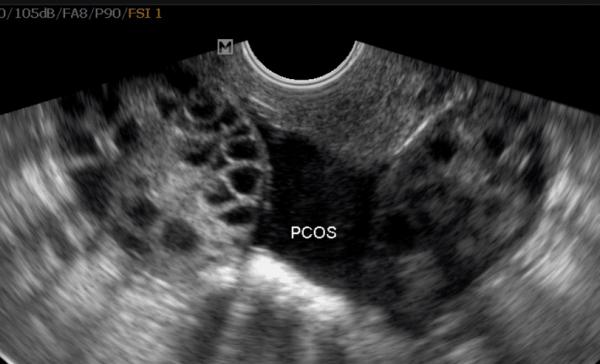 Diagnosis of polycystic ovary syndrome
Diagnosis of polycystic ovary syndromeWhat are the complications of polycystic syndrome?
Women with polycystic ovary syndrome face more health problems than other women. Among these diseases, the following can be mentioned:
Type 2 diabetes
– High blood pressure
– Cardiovascular problems
– uterus cancer
Women with polycystic ovary syndrome are often involved in pregnancy problems. These women are either weak in pregnancy or suffer from infertility.
Tips about polycystic ovary syndrome
Polycystic ovary syndrome can have significant effects on women's health and quality of life.
– With early diagnosis and proper management, symptoms and problems associated with polycystic ovary syndrome can be reduced and quality of life can be improved.
– If you are struggling with this syndrome, it is important to consult a doctor who specializes in this field to determine the right treatment plan for you.
Also, healthy lifestyle changes and compliance with medical orders play an important role in managing this syndrome.
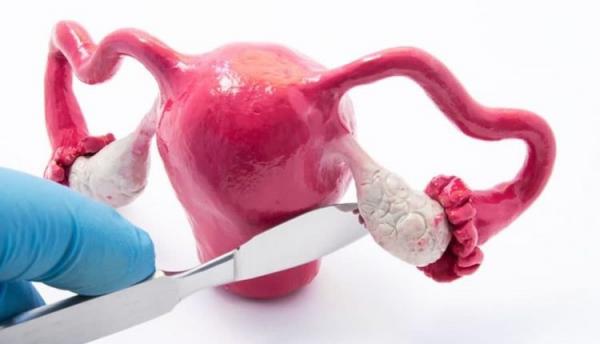 Treatment of polycystic ovary syndrome
Treatment of polycystic ovary syndromeA final word about polycystic ovary syndrome
Polycystic ovary syndrome is a common hormonal disorder in women that can cause a wide range of symptoms. Early diagnosis and proper treatment of PCOS can control symptoms and prevent serious complications. If you have any of the symptoms of PCOS, it's important to talk to your doctor.
compilation: Cover health department






